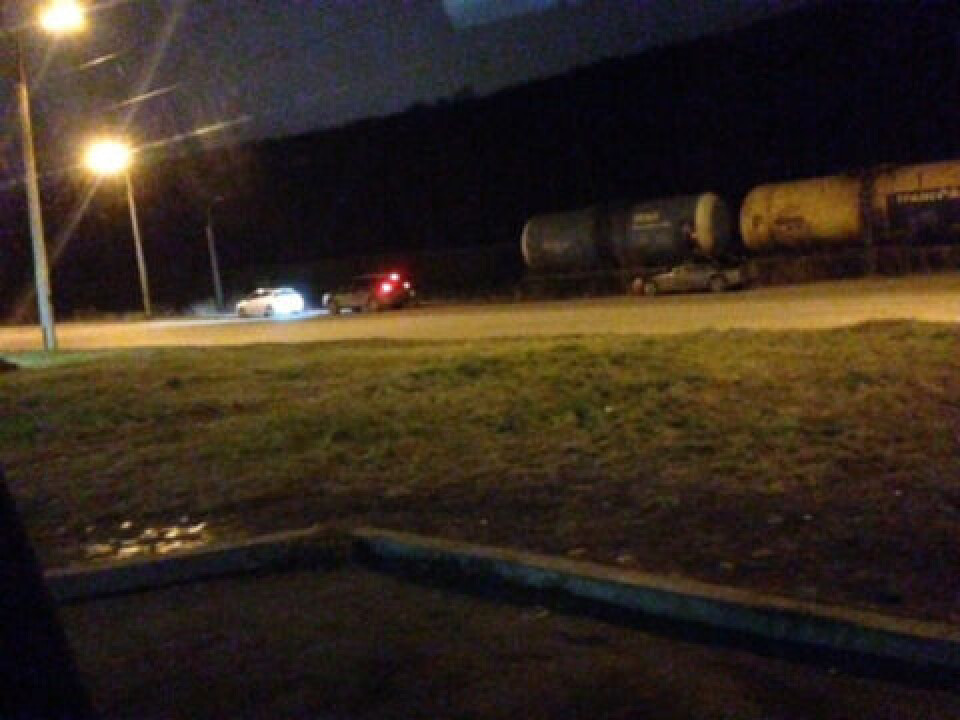
More restless waters at the Murmansk Fish Port
A padlock is now blocking the way to the fishing port fuel bunker
p.p1 {margin: 0.0px 0.0px 8.0px 0.0px; font: 11.5px Georgia; color: #333333; -webkit-text-stroke: #333333}span.s1 {font-kerning: none}span.s2 {font: 11.5px ‘Times New Roman’; font-kerning: none}p.p1 {margin: 0.0px 0.0px 8.0px 0.0px; font: 11.5px Georgia; color: #333333; -webkit-text-stroke: #333333}p.p2 {margin: 0.0px 0.0px 0.0px 0.0px; font: 11.5px Georgia; color: #333333; -webkit-text-stroke: #333333}p.p3 {margin: 0.0px 0.0px 0.0px 0.0px; font: 11.5px Georgia; color: #333333; -webkit-text-stroke: #333333; min-height: 14.0px}p.p4 {margin: 0.0px 0.0px 0.0px 0.0px; font: 12.0px ‘Times New Roman’; color: #000000; -webkit-text-stroke: #000000; min-height: 15.0px}span.s1 {font-kerning: none}span.s2 {font: 11.5px ‘Times New Roman’; font-kerning: none}span.s3 {font: 12.0px ‘Times New Roman’; font-kerning: none}
Text by Bloger51

Right now at the local fishing port, there are some small, almost unnoticeable but very tense chess moves taking place. Amongst them, the owners of the Murmansk Sea Fishing Port are attempting to further gain control of the port’s operations by paralyzing the railway system. They have “padlocked” the track switching system that allows trains to directly service the port’s oil terminal.
Problems at the port have been going on for several years since Evgeny Mizin and Viktor Shvetsov, co-owners of the “Kupetz” company, took control of the port for the amazingly low cost of 1 billion rubles (about €10,5 million). The fishing and service companies using the port say the new owners are unnecessarily greedy and are running a monopoly trying to wring every penny out of them that they can. The new ownership attributes the tenants’ complaints to the poor legacy left over from the previous ownership, the state.
This little padlock itself is of course not strong enough to stop the train system permanently but it is one of a number hindrances that have been set up by the port’s new owners to drive competition for port services away and in this case, to establish a measure of control over one of its tenants. All of the port’s tenants have been wringing their hands for the past two years trying to free themselves from the port’s rather brutal management style.

For example, the port raised the rates for unloading ships several times. But when the fish processors began to unload the fish with local truck cranes as a means to control costs, the port authorities in turn passed a rule prohibiting local truck cranes from entering the territory. And when the fishing companies hired an “outside” loading-unloading crane, the owners simply turned off the electricity. When they raised the cost of using the port’s refrigerators, rather than allowing outsourcing, they simply prohibited any refrigeration equipment from entering the territory. Yes, these moves are illegal and yes, it is rather rude. But the orders stay in force for several months before the companies can get them removed. And you know, it’s pennyante stuff but it all adds up.
The new padlock on the railway switch is yet another control move by the owners. This time, the fight is with the uppity oil terminal, who is supposed to be exclusively handling the port’s fuel.
The clash of business interests here lies in the fact that the oil terminal has demanded that the port pay a tariff for over usage of the train tracks. The oil terminal says that the port has been giving priority to trains bringing fuel to its own collection of hundreds of fuel tanks. This prioritizing has seriously been hindering the dispatch of fuel to the terminal proper. There is an automated system for registering wagons that does not allow trains to be sent to Murmansk when the threshold reaches a certain number of tanks. The port’s intensive usage causes the system to overload and expensive shutdowns happen all the time. They say that along with trying to control the loading-unloading, refrigerators and other services, the new port owners are also stockpiling fuel and taking control of the storage bunker. This tariff had earlier been approved by the regional regulation committee.
But the port now claims that their track usage is justified as they are performing a necessary service. The port boiler is responsible, at least for the next few years until a new boiler is built, for heating several dozen nearby houses. They have claimed, including at a meeting in the regional government, that because those fuel tanks are going to the boiler and are transporting fuel oil exactly for the boiler, they should not be taxed or prohibited from this work. The oil terminal says that there are not that many tanks used specifically for this purpose and those that are do not account for more than 10% of the total. And allowing the oil terminal it’s normal access will not have any influence on the heating season.
This responsibility for heating local homes by the way was one of the encumbrances when buying their stake in the port. The new port owners demanded a relief from taxes saying they were operating at a loss due to this responsibility and demanded that the government pay them restitution, which they got. The authorities, fearing scandal during the heating season of an election year, capitulated, as they have several times, and decided to build a new boiler, relieving the port of its responsibilities within the next two years.
But in response to the oil terminal’s disturbances, the port did two things. Firstly, they went to the local media and said that the oil terminal’s actions might lead to tragedy in the upcoming heating system, thus putting adequate pressure to secure a favourable result from the government. And then they padlocked the track switching system, blocking any direct access to the oil terminal, effectively putting them out of business.
And so this is the latest stage of the confrontation between the port and the fishing and service companies that use the port. And as the port does in fact control the train lines and has been leasing the oil terminal all of its key infrastructure for several decades, including the tracks leading to and from the storage bunker, they say their actions are within their rights.
Is it become a shooting and territory capture war like the recent storming of the Kola brewery? Well, it seems as though the pre-election season has begun.
This story is originally posted on the Bloger51.ru and re-published as part of Eyes on Barents, a collaborative partnership between news organizations and bloggers in the Barents region















